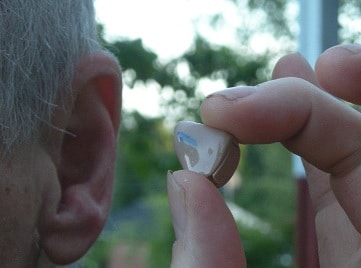According to the Pew Research Center, roughly 10,000 Baby-boomers will turn 65 today, and about 10,000 more will cross that threshold every day for the next 15 years.With this aging population comes the increased risk of Alzheimer’s as well as other forms of cognitive decline. The prevalence of dementia is expected to double every 20 years because of the aging of the world population. A November 25th article in the Journal of the American Medical Association (JAMA) sheds light on how cognitive decline can be mitigated in our rapidly aging population.
The JAMA report, authored by Bridget Kuehn, MSJ, a Chicago-based freelance science writer, outlined three behavioral factors that appear to modify or stave off the effects of cognitive decline. These three factors are:
- Cardiovascular health
- The immune system’s ability to protect the brain from injury and infection
- Social support
Recent research in all three areas suggests that the brain’s own defense mechanisms, along with leading a socially active lifestyle, may prevent cognitive decline.
Understanding the Connection
Given the relationship between hearing loss and social isolation, hearing care professionals may play an integral role in preventing or reducing the impact of cognitive decline in aging individuals. And, this role may be more than fitting and dispensing hearing aids.
Recent findings from the Framingham Heart Study showed that social support for older adults increases levels of the protein called brain-derived neurotropic factor (BDNF) and reduces their risk of dementia and stroke.
Social activities are among the healthy lifestyle choices that are believed to increase BDNF in older adults.
This JAMA report dovetails with a recent $12 million dollar boost in funding from the National Institutes of Health and the National Institute on Aging that will increase research on brain resilience and cognitive function in aging adults.
Reaction to the Report
Dr. Jill Preminger, a professor at the Louisville School of Medicine commented on the JAMA report:
“The finding that social support for elders reduces their risk of dementia and stroke is particularly interesting to me. In work that we have done with adult children of parents with hearing impairment{{1}}[[1]]Preminger JE, Montano JJ, Tjornhoj-Thomsen T. Adult-children’s perspectives on a parent’s hearing impairment and its impact on their relationship and communication. International Journal of Audiology. 2015:1-7.[[1]] we have found that a common lament is, ‘why won’t my father wear his hearing aid?’ Yet, many of these same adult children don’t want to “push” their parents into wearing their hearing aids.
Recent work from our colleagues in Australia has shown that audiologists typically make little effort to include communication partners in hearing aid consultation appointments.{{2}}[[2]]Ekberg K, Meyer C, Scarinci N, Grenness C, Hickson L. Family member involvement in audiology appointments with older people with hearing impairment. International Journal of Audiology. 2015;54(2):70-6.[[2]] This is disappointing as previous research has shown that when communication partners are included in group AR, people with hearing impairment show a much larger improvement in hearing loss related quality of life as compared to people with hearing impairment attending the same groups on their own.{{3}}[[3]]Preminger JE. Should significant others be encouraged to join adult group audiologic rehabilitation classes? Journal of the American Academy of Audiology. 2003;14(10):545-55.[[3]] Perhaps in the group AR the communication partners learn how to encourage their partner’s with hearing impairment to wear their hearing aids in a supportive manner? The fact remains that when we include social support in the AR process, outcomes improve.
Does the inclusion of social support in the AR process reduce the risk of dementia and stroke? No, we cannot say this because we certainly don’t have evidence of this. But perhaps there is a shared mechanism generated by social support that decreases dementia and improves hearing loss related quality of life?”
Addressing Cognitive Decline
If it is indeed the case that more socially active individuals have higher levels of the BDNF protein, which have been shown in preliminary studies to stave off cognitive decline, then audiologists and hearing instrument specialists may play an important part in keeping aging adults engaged in daily activities through aural rehabilitation and other strategies, including provision of amplification.
*featured image courtesy wikipedia






